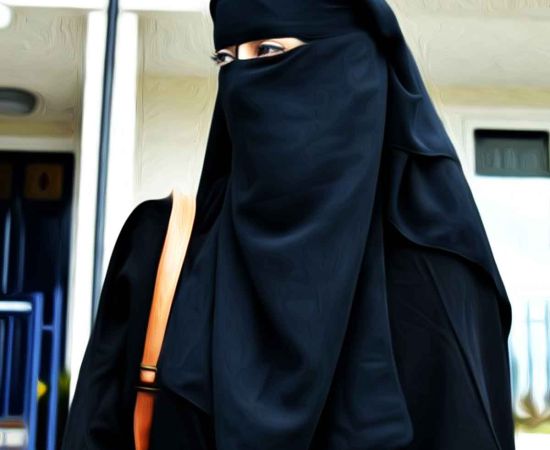More Coverage
Twitter Coverage
Written on
Written on
Written on
Written on
JOIN SATYAAGRAH SOCIAL MEDIA
Shocking Revelation in Chandigarh Scandal: Woman Installs Wi-Fi Enabled Camera in Girls' PG Bathroom on Boyfriend's Orders; arrested duo had live feed access, but police confirm no recorded content. Privacy violation at its most alarming

In a shocking incident that has sent ripples through the community, a 22-year-old woman and her 30-year-old male friend were apprehended by the Sector 17 police in Chandigarh. The arrest follows the discovery of a covertly placed camera in the bathroom of a Girls' Paying Guest (PG) facility.
|
According to Deputy Superintendent of Police Chandigarh, Ram Gopal, who addressed the media on the 29th of November, the investigation began when a distressed resident of a Sector 22 PG reported an unsettling discovery. The victimized girl approached the authorities, raising an alarm about a suspicious object resembling a camera positioned above the geyser in her bathroom.
This chilling revelation marks a grave violation of privacy, shaking the sense of security within the confines of what should be a safe living space for female residents. The incident not only exposes a blatant breach of trust but also highlights the sinister collaboration between the young woman and her male friend in perpetrating this invasive act. As the legal wheels turn, it becomes imperative to delve deeper into the unfolding narrative and understand the motivations behind such a disturbing violation.
Upon receiving the distressing complaint, the Chandigarh police promptly mobilized to the scene and successfully recovered a web camera strategically placed in the compromised bathroom. The gravity of the situation led to the immediate filing of a First Information Report (FIR), initiating the legal proceedings against those responsible for this egregious breach of privacy.
As the investigation unfolded, it took a shocking turn when it was revealed that a resident from the same PG, a young girl, was the one responsible for installing the illicit camera. The depth of the betrayal intensified as it became apparent that she acted under the explicit instructions of an individual residing in Sector 21. Both the young woman and her accomplice, the mastermind behind this invasive act, were promptly taken into custody, ensuring swift justice in the face of such an egregious violation.
|
The timeline of events in this sordid affair dates back to the 26th of November when a 39-year-old woman from Fazilka, residing in the same paying guest house, made a startling discovery. The woman noticed an unusual light emanating from the washroom, even when the switch was turned off, sparking immediate concern. This revelation not only underscores the audacious nature of the crime but also emphasizes the importance of vigilant community members in bringing such violations to light. The incident serves as a stark reminder of the need for heightened awareness and measures to safeguard the privacy and security of individuals, especially in shared living spaces like PG accommodations.
The swift response of a vigilant community member played a pivotal role in unraveling the disturbing truth behind the surreptitious camera in the Girls' PG bathroom. The 39-year-old woman from Fazilka, upon making the unsettling discovery, wasted no time in alerting both a friend and the responsible house owner about the insidious device. Recognizing the gravity of the situation, the house owner took immediate action by contacting the police, setting in motion a comprehensive investigation to identify and apprehend the perpetrators.
In their response to the complaint, the police team conducted a meticulous investigation that ultimately led them to a 22-year-old resident within the PG premises. The insidious camera was strategically positioned near the geyser in the bathroom, heightening the sense of violation experienced by the unsuspecting victims. The revelation of a fellow PG resident being behind such a breach serves as a stark reminder of the need for trust and accountability within shared living spaces.
|
Delving deeper into the investigation, the police unearthed a crucial detail that pointed towards the origin of the covert surveillance device. The camera in question was traced back to the Sector 45 market, shedding light on the commercial availability of such invasive technology. This revelation not only underscores the need for heightened awareness regarding the potential misuse of readily available devices but also prompts a broader conversation about ensuring the security and privacy of individuals in an increasingly interconnected world. The incident serves as a stark reminder of the challenges posed by evolving technology and the imperative for robust measures to safeguard personal spaces from unwarranted intrusions.
The plot thickens as the accused woman makes a shocking revelation, claiming that her actions were coerced by a 30-year-old man named Amit Handa from Sector 21. According to her statement, Handa resorted to blackmail, compelling her to place the invasive camera in the bathroom. This disturbing twist not only adds complexity to the case but also raises questions about the motives behind such a violation of privacy. The accused woman, who was reportedly preparing for the IELTS examination, finds herself entangled in a web of manipulation orchestrated by an unemployed individual.
Reports indicate that the camera discovered in the bathroom was equipped with Wi-Fi capabilities, granting both the accused access to a live feed. However, a crucial detail emerges as the police clarify that the device lacked any recording functionality. This nuance in the technology suggests that the invasion of privacy might have been more immediate and voyeuristic in nature, without the intention of archiving the illicit footage for future use.
|
In a bid to unravel the intricacies of this unsettling case, the device recovered during the investigation has been forwarded to the Central Forensic Science Laboratory. The examination aims to shed light on the device's capabilities, potential data stored, and any traces of unauthorized access. The forensic report is anticipated to be a critical piece in understanding the full extent of the breach and the psychological impact it may have on the victims.
As of now, the police maintain that no video content has been recovered from the device. However, the final verdict on the nature of the content and any potential dissemination will only be revealed after a thorough examination by the forensic experts. This development emphasizes the critical role of forensic analysis in modern crime investigations, highlighting the need for technological expertise to navigate the nuances of digital evidence and ensure justice in cases of privacy violations.
The shocking incident in Chandigarh takes a more disturbing turn as it comes to light that a woman has been arrested for surreptitiously placing a hidden camera in the bathroom of her PG accommodation and filming her four unsuspecting roommates. The accused, in a startling admission to the police, revealed that she acted upon the instructions of her boyfriend. The chilling inspiration for this egregious act, she claimed, was drawn from a film titled 'The Kerala Story.' This revelation not only deepens the sense of violation experienced by the victims but also raises concerns about the influence of media in shaping criminal behavior.
|
In a move to gather crucial evidence, the police have seized the phones of both the accused woman and her boyfriend, sending them for forensic analysis. Despite the disturbing nature of the case, the authorities report that no videos have been discovered on either the covert camera or the mobile phones of the accused and her accomplice. The absence of concrete evidence raises questions about the potential existence of deleted content or the accuracy of the perpetrator's admission.
The PG owner, caught in the midst of this harrowing situation, highlighted a concerning lapse in security measures. While he had diligently collected documents from the residents, police verification had not been completed for the accused woman. This oversight brings attention to the importance of robust verification processes in shared accommodations, emphasizing the need for stringent measures to ensure the safety and well-being of all residents.
As the investigation continues, the ordeal faced by the victims unfolds as a stark reminder of the vulnerability individuals face in shared living spaces. The case not only underscores the importance of privacy safeguards but also prompts a critical examination of the societal factors contributing to such alarming incidents. The revelation of the accused's cinematic inspiration raises questions about the potential impact of media on individuals' moral compass and ethical boundaries, warranting a broader conversation about the responsibility of content creators in shaping societal behavior.
In a startling revelation, the accused woman admits to drawing inspiration from the film 'The Kerala Story' for her intrusive actions, shedding light on the influence of media in shaping her criminal behavior. The acknowledgment of financial motives as a driving force behind her actions adds a layer of complexity to the case, raising questions about the lengths individuals might go for personal gain, even at the expense of others' privacy and well-being.
|
The legal repercussions of this egregious act are swift and decisive. An FIR has been registered at the Sector 17 police station, invoking specific sections of the Indian Penal Code and the Information Technology Act. The charges include Section 354-C, which pertains to voyeurism, Section 509, addressing acts intended to insult the modesty of a woman, and Section 66E, dealing with the violation of privacy in the digital realm. These stringent legal actions reflect the severity of the offense and the commitment of the authorities to deliver justice to the victims.
Section 354-C of the Indian Penal Code addresses voyeurism, a crime that infringes upon the privacy of an individual by observing, recording, or capturing images without their consent. The inclusion of Section 509 highlights the broader implications of the accused's actions, acknowledging the intent to insult the modesty of the victims. The incorporation of Section 66E of the Information Technology Act emphasizes the digital nature of the crime, underlining the need for legal frameworks that evolve with technological advancements to safeguard individuals from modern forms of privacy invasion.
As the legal proceedings unfold, the case serves as a poignant reminder of the challenges law enforcement faces in addressing crimes influenced by media content. It prompts a critical examination of the ethical responsibilities of content creators and the role of media literacy in preventing the translation of cinematic inspiration into real-world criminal acts. The stringent charges filed against the accused underscore the gravity of privacy violations and send a clear message about the consequences awaiting those who breach the sanctity of personal spaces.
Chandigarh University MMS Controversy Resurfaces: Echoes of Past Scandal
The disturbing trend of privacy violations echoes in the recent controversy at Chandigarh University (Mohali), reminiscent of a similar incident that unfolded last year. In September 2022, a female student allegedly engaged in the filming of multiple female students bathing and subsequently shared the explicit videos with a male accomplice. The ramifications of this scandal reached a critical point when three individuals, including the female student, were arrested in connection with the case. The unsettling revelation not only shocked the university community but also triggered widespread protests, resulting in a forceful lathi charge by the police.
As the investigation progressed, a twist emerged when the accused student claimed that she had only filmed herself and shared those specific videos. This assertion added layers of complexity to the controversy, sparking political turmoil in the region. The gravity of the situation prompted the Punjab Chief Minister to intervene, urging for calm and emphasizing the importance of maintaining peace in the region. The incident triggered a high-level probe, underlining the need for a thorough examination of the facts to uncover the truth and ensure justice.
|
The recurrence of such incidents within educational institutions raises concerns about the safety and security of students in shared living spaces. The university, once a bastion of learning and growth, now finds itself grappling with the repercussions of privacy breaches that not only tarnish its reputation but also erode the trust of students and their families. The protests and police action underscore the collective anger and frustration of the university community, demanding accountability and stringent measures to prevent the recurrence of such incidents.
These successive scandals spotlight the urgent need for educational institutions to revisit and reinforce their security protocols, ensuring the well-being and privacy of their students. The controversies also prompt a broader societal conversation about the ethical use of technology, the impact of media content on behavior, and the imperative for proactive measures to curb privacy violations. As both incidents unfold, they serve as cautionary tales, urging institutions and authorities to take decisive action to safeguard the sanctity of personal spaces and restore a sense of security within educational environments.
|
 Support Us
Support Us
Satyagraha was born from the heart of our land, with an undying aim to unveil the true essence of Bharat. It seeks to illuminate the hidden tales of our valiant freedom fighters and the rich chronicles that haven't yet sung their complete melody in the mainstream.
While platforms like NDTV and 'The Wire' effortlessly garner funds under the banner of safeguarding democracy, we at Satyagraha walk a different path. Our strength and resonance come from you. In this journey to weave a stronger Bharat, every little contribution amplifies our voice. Let's come together, contribute as you can, and champion the true spirit of our nation.
Please share the article on other platforms
DISCLAIMER: The author is solely responsible for the views expressed in this article. The author carries the responsibility for citing and/or licensing of images utilized within the text. The website also frequently uses non-commercial images for representational purposes only in line with the article. We are not responsible for the authenticity of such images. If some images have a copyright issue, we request the person/entity to contact us at satyaagrahindia@gmail.com and we will take the necessary actions to resolve the issue.




























